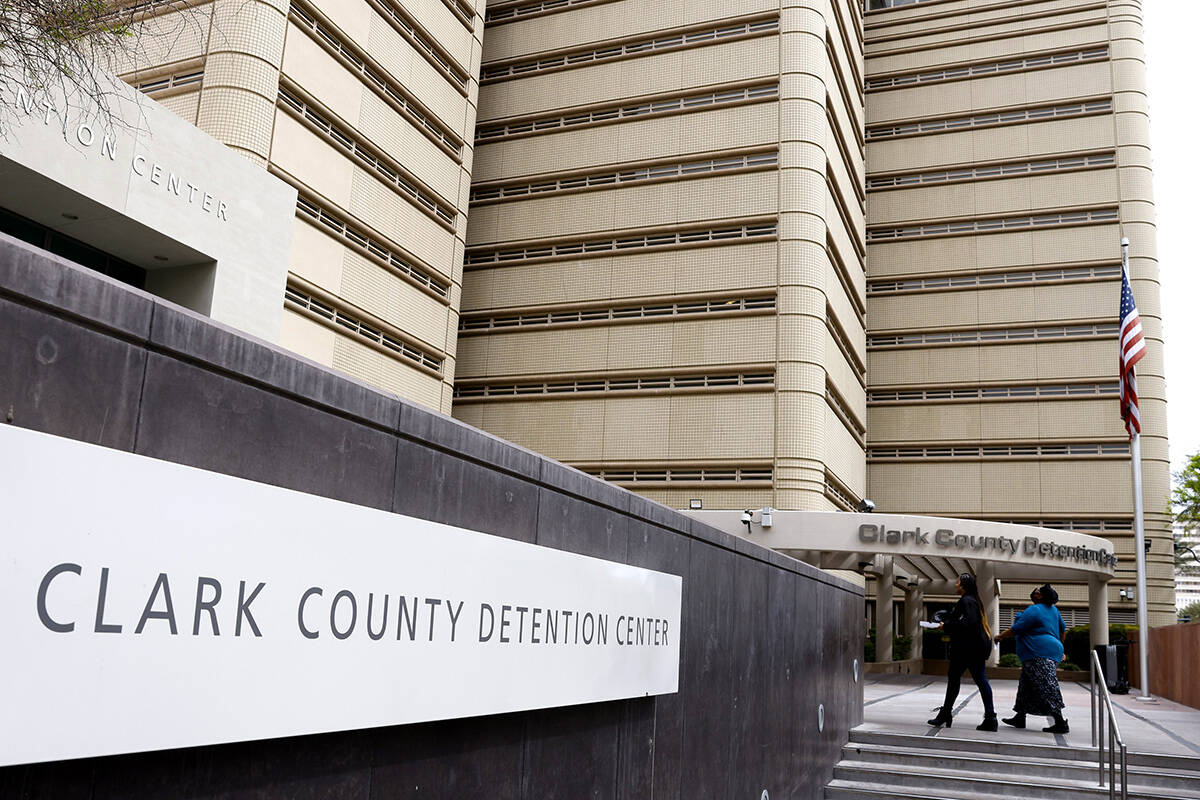How does bail work in Las Vegas?
For the hundreds of people who go through Clark County’s court systems every year, many will have to navigate paying for a bail.
Five years ago, the Nevada Supreme Court set new standards for monetary bail in the state in what is known as the Valdez-Jimenez decision, which requires judges to make a series of findings before issuing a bail, such as the defendant’s danger to the community and criminal history. Although lawyers agree that judges still have significant leeway in the bail amounts they can set.
Here’s what happens when a defendant has to pay bail:
Cash bail
For many lower-level offenses, a standard bail is set when a defendant is arrested and booked into jail. Before the defendant even sees a judge, someone can go to the jail and either post a cash bail, or post bail through a bail bondsman.
Cash bail means someone will pay the full bail amount to the court, which is meant to ensure the defendant makes court appearances. The defendant will receive the full cash bail back once the case is resolved, as long as they appeared in court.
“You get that money back no matter what, whether you’re guilty or not,” said defense attorney Christopher Oram. “All it’s for is to ensure that you appear.”
Oram said if his defendants can afford it, he always recommends that they pay a cash bail to ensure they receive their money back.
Bail bondsman
When a defendant can’t afford cash bail, they can go through a bail bonds company. Nevada law requires that a bail bondsman charges clients 15 percent of the total bail amount in order to pay for the bond, said Gino Caruso, a licensed agent at Goodfellas Bail Bonds. The amount paid to the company to secure the bond is considered non-refundable.
“Most people don’t have that amount of cash at the exact moment that they are put in jail,” Caruso said about cash bail. “We put it up in the form of a bond and then we can take a credit card for 15 percent of that.”
Acquiring a bond could also require a cosigner or putting up collateral. If the defendant skips out on a court hearing, the cosigner could become liable for the full amount of the bail.
Courts notify the bail bonds company when a defendant misses a hearing, and the company has six months to find the defendant and bring them back into custody, Caruso said. The bonds company will work with a licensed fugitive recovery agent, also known as a bounty hunter, to locate defendants who miss court appearances.
Once someone posts bail, it could take more than a day for the jail to release them from custody, especially if they are being placed on electronic monitoring, said local defense attorney Jess Marchese.
“It’s not an automatic thing,” he said.
Unlike in state court, monetary bail is not a common factor in federal court cases.
If a federal judge decides a defendant can be released before a criminal trial, they will likely set non-monetary conditions, such as surrendering a passport or submitting to drug testing.
“For the most part, the judge releases you with conditions, or they don’t release you,” Oram said.
Valdez-Jimenez
In 2020, the Nevada Supreme Court issued the 6-to-1 Valdez-Jimenez decision, which created a new set of standards for judges to set monetary bail. Judges now have to make multiple findings before setting a bail, which include determining if the defendant is a danger to the community, has a prior criminal history, has ties to the community, is able to afford the bail or is likely to be convicted.
Former public defender Christy Craig, who is now a District Court judge, argued the case in front of the Supreme Court alongside Nancy Lemcke, who is now the Clark County Public Defender. The two argued that changing Nevada’s bail structure would allow for nonviolent offenders and poorer defendants to be released on their own recognizance, rather than staying in jail only because they cannot afford bail.
Attorneys said that bail amounts can still vary depending on the judge, who still holds some discretion in setting bail after making the findings required by the Valdez-Jimenez decision.
“As long as they say the right things on the record, they can basically go to whatever bail setting that they want,” Marchese said.
Contact Katelyn Newberg at knewberg@reviewjournal.com or 702-383-0240. Newberg is a member of the Review-Journal’s investigative team, focusing on reporting that holds leaders and agencies accountable and exposes wrongdoing.


















